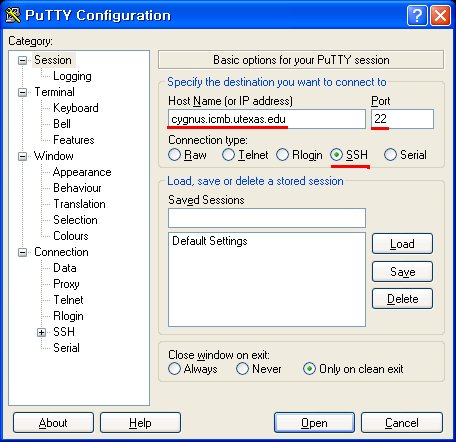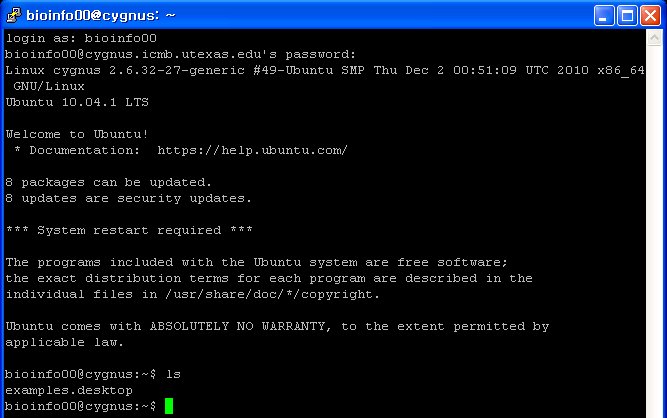Difference between revisions of "CH391L 2013/Connecting Server"
(Created page with "* If you already got the account info from John or I, but you don't know how to connect to the server using that information, here are some brief instructions. == Windows == Fi...") |
(→Mac) |
||
| Line 23: | Line 23: | ||
== Mac == | == Mac == | ||
| − | If you use Mac OSX, it is very easy to connect server. | + | If you use Mac OSX, it is very easy to connect to the server. |
# Open 'Terminal' | # Open 'Terminal' | ||
# Type 'ssh bit.icmb.utexas.edu' | # Type 'ssh bit.icmb.utexas.edu' | ||
Then, type your id and password. That's it. (I am not sure whether ssh client is a default app or not, so if not, you may have to first install it.) | Then, type your id and password. That's it. (I am not sure whether ssh client is a default app or not, so if not, you may have to first install it.) | ||
Revision as of 14:47, 22 January 2013
- If you already got the account info from John or I, but you don't know how to connect to the server using that information, here are some brief instructions.
Windows
First, download 'putty.exe' from putty website: http://www.chiark.greenend.org.uk/~sgtatham/putty/download.html
If you are still confused, just click this.
You can see 'putty' or 'putty.exe' file on your computer. Click the file, so you can see the window like this.

Type in the 'host' address (These images are from logging in to a computer named "cygnus". Yours should read "bit.icmb.utexas.edu". Also check the port number and 'ssh' protocol.
Then, a new type of window will ask for your login id and password.

Tada! Now you are in the bit server.

If you want to logout, type 'exit'.
Mac
If you use Mac OSX, it is very easy to connect to the server.
- Open 'Terminal'
- Type 'ssh bit.icmb.utexas.edu'
Then, type your id and password. That's it. (I am not sure whether ssh client is a default app or not, so if not, you may have to first install it.)